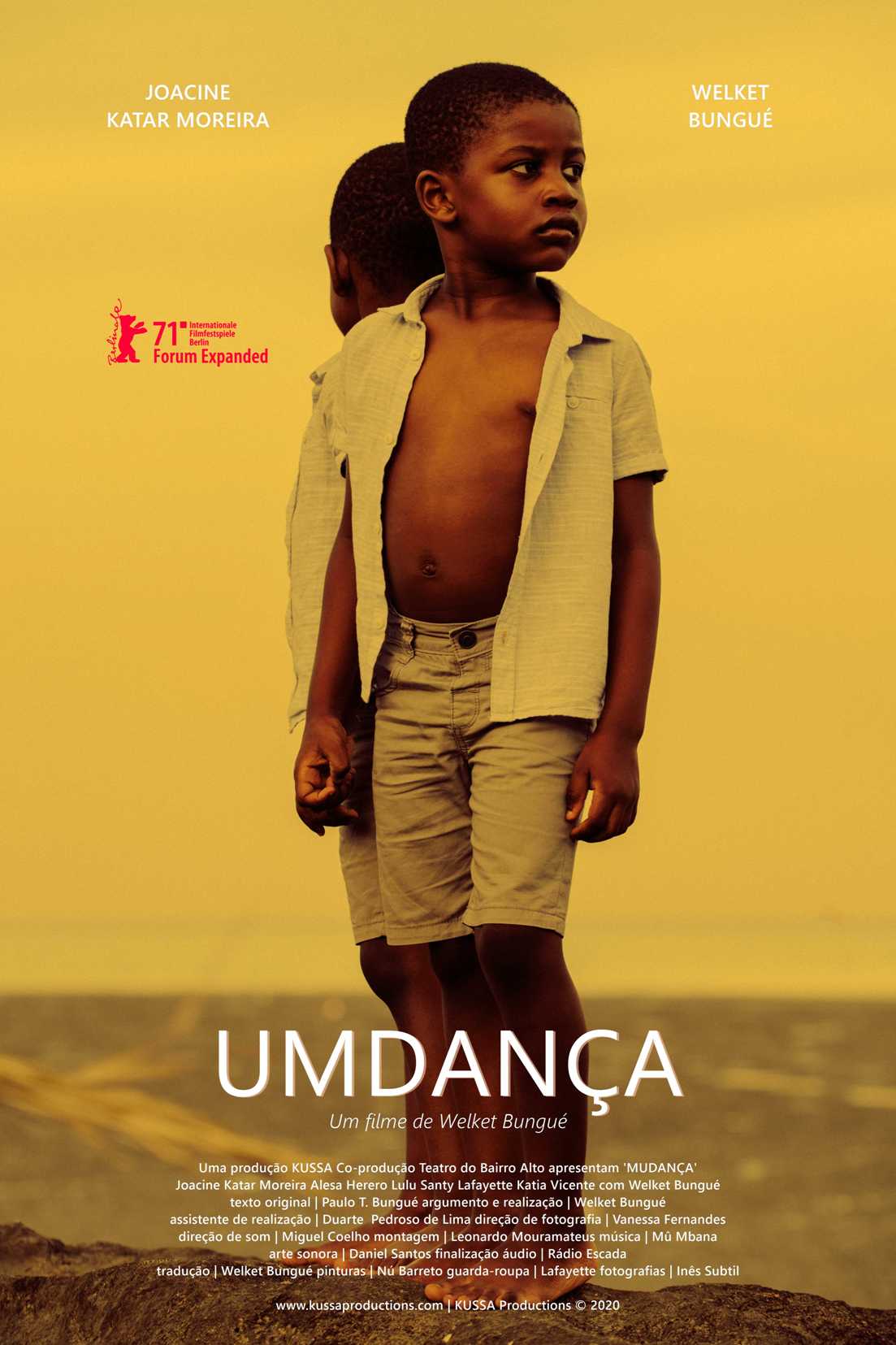Welket Bungué

Welket Bungué
2020, 27min, Portugal - Guinea Bissau - Germany

Welket Bungué
2020, 27min, Portugal - Guinea Bissau - Germany

UPHEAVAL
UPHEAVAL
For display rights reasons, viewing this content requires registration and use of the following access voucher: CineEsquemaNovo2021
 |
The essential is to generate life, dialogue, understanding, and celebrate humanity. |
Original Text: Paulo Tambá Bungué
From: “Mudança” and 'COBDE' in 'Cabaró, Djito Tem!' (1996)
Text Interviews: Joacine Katar Moreira
Dramaturgy: Welket Bungué
Director and Scriptwriter: Welket Bungué
Director Assistant: Duarte Pedroso de Lima
Director of Photography: Vanessa Fernandes
Cinematography: Vanessa Fernandes
Sound: Miguel Coelho
Production Design / Director of Art: Welket Bungué
Scenography: Welket Bungué, Lafayette
Montage by: Leonardo Mouramateus
Sound Design: Daniel Santos
Audio Post Production: Rádio Escada (RJ)
Wardrobe: Lafayette
Wardrobe Assistant: David Ferreira
Decorations: GHIRA, Não Só Roupa
Costumes Mrs. Joacine K. Moreira: Roselyn Silva
Make Up Mrs. Joacine K. Moreira: Katia Vicente
Jewelry Mrs. Joacine K. Moreira: Não Só Roupa by Patrícia Domingues
Music: “Kudjer di Tira”, “Lungu di Bo (Bu Bonitásku)” by Mû Mbana
Paintings: Nú Barreto, Fredrick “Faran” Rodrigues
Pintura do Poster: 'Pó Di Tchon' por Nú Barreto
Painting photography: Atelier 80/Paris
Locations: Lisbon, Marseille
71ª Berlinale - Mostra Fórum Expanded (Germany)
Texto Original: Paulo Tambá Bungué
A partir de: “Mudança” e 'COBDE' in 'Cabaró, Djito Tem!' (1996)
Texto Entrevistas: Joacine Katar Moreira
Dramaturgia: Welket Bungué
Argumento e Realização: Welket Bungué
Assistente de Realização: Duarte Pedroso de Lima
Direção de Fotografia: Vanessa Fernandes
Desenho de Luz: Vanessa Fernandes
Direção de Som: Miguel Coelho
Direção de Arte: Welket Bungué
Cenografia: Welket Bungué, Lafayette
Montagem: Leonardo Mouramateus
Arte Sonora: Daniel Santos
Finalização de Áudio: Rádio Escada (RJ)
Guarda-Roupa: Lafayette
Assistente de Guarda-Roupa: David Ferreira
Adereços: GHIRA, Não Só Roupa
Figurinos Sra. Joacine K. Moreira: Roselyn Silva
Make Up Sra. Joacine K. Moreira: Katia Vicente
Jóias Sra. Joacine K. Moreira: Não Só Roupa by Patrícia Domingues
Música: “Kudjer di Tira”, “Lungu di Bo (Bu Bonitásku)” por Mû Mbana
Pinturas: Nú Barreto, Fredrick “Faran” Rodrigues
Pintura do Poster: 'Pó Di Tchon' por Nú Barreto
Fotografia da Pintura: Atelier 80/Paris
Locais de Filmagem: Lisboa, Marselha
ARTIST'S BIOGRAPHY
ARTIST'S BIOGRAPHY
In order to articulate a film that could fulfill the objectives of the challenge proposed by Francisco Frazão, the Artistic Director of Theatre of Bairro Alto in Lisbon, where the intention was to create an artistic approach that puts in dialogue the activities of those considered “essential workers” and the artists in general, I came up with the idea of the dance film 'Upheaval''. Since July 2020, I could shortly restart the possibility of traveling, and I went to Marseille. There I realized that I would like to glimpse the possibility of seeing the most prominent voice of the current Portuguese national politics, that most represents the inclusion and the equality among the popular diversity. This thought, corresponds exactly to the purposes of the social-civic agenda developed by the citizen and deputy Joacine Katar Moreira. In Marseille, in a temperate Mediterranean climate, typical of summer, I witnessed the resumption of cultural activities, where was cautiously possible to see again a crowd of people celebrating life, near the Cours Julien district. This cluster reflected an idea of cohesion and social cohabitation, that I continue to find essential to reflect in our current Portuguese society. But, I needed to understand which figure has most represented this feeling in Portugal. So I came to the conclusion that Joacine, the Bissauan-Guinean woman, the first black parlamentary woman in Portugal, could be the potential “essential worker” that I needed. So this idea became clear to me immediately, and I decided to propose it to the her. The objective was to convince her to reherse two prose-poetry texts written by my father, Paulo T. Bungué, originally published in his book 'Cabaró, Djito Tem!' (Lisboa, 1996). In times of widespread pandemic, questioning the preservation of democracy, the integrity of public health, and our own notions of individuality, we are dragged by a process of change already underway. How to think about a meeting between an artist and a deputy, who decide to question the essence of their crafts? In 'Upheaval' the challenge is to make the artist Welket Bungué and the politician Joacine Katar Moreira, on using their expression and communication skills, which can be questioned physically and orally, based on the understanding of what is the essence of the rhetorical art, and the performing art, respectively. The film uses the projection of original paintings conceived by the artist Nú Barreto, and has the musical landscape composed by Mû Mbana, both artists originally from Guinea-Bissau. 'Upheaval' has as its visual proposal the plasticity of the poems 'Mudança' and 'COBDE', and the digital image projections over the performer's bodies. The music and the textual content appeal to the dreamlike of a territory imagery sensations, brought by the references from the people of the Bijagó archipelago, in Guinea-Bissau. 'Upheaval' is a dance-film that continues my work 'N'sumande Tchalih Hudi' (2019), an epic-narrative film created with images captured in the Amazon rainforest, and in the Natural Park of Itatiaia (Brazil).
ARTICLE by Rodrigo Fonseca – Estadão
ARTICLE by Tiago Resende – Cinema Sétima Arte
ARTICLE by João Carlos – Deustche Welle





